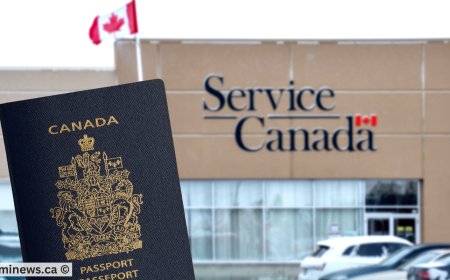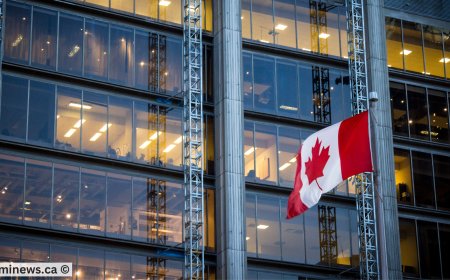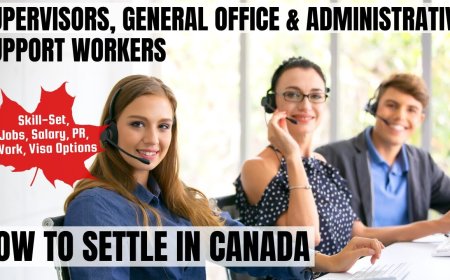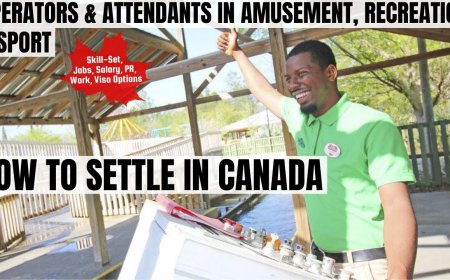Correspondence, publication and regulatory clerks Migration to Canada: A Detailed Guide on Salaries, Professional Responsibilities, and Preferred Locations
Welcome to the pathway to Canada immigration for skilled professionals and trade workers. This guide is specifically tailored for Correspondence, publication and regulatory clerks looking to work and settle in Canada, offering a deep dive into the essential aspects of immigration and employment in this field.
Introduction
Canada is known for its welcoming attitude towards immigrants and its booming job market. In this article, we will explore the career and immigration prospects for Correspondence, publication, and regulatory clerks in Canada. We will delve into the profile description, main job duties, education and license requirements, skills needed for success in this field, as well as the median salary and retirement prospects. Additionally, we will discuss the possible visa options for those looking to pursue a career in this field in Canada. Read on to discover the opportunities awaiting you in this thriving industry.
What is the Profile Description of a Correspondence, publication and regulatory clerks as per the Canadian National Occupation Classification (NOC) Standards?
Correspondence, publication, and regulatory clerks are responsible for various tasks including composing correspondence, editing and checking materials for accuracy, organizing content for publication, verifying and processing forms and documents such as applications and contracts. They also perform other clerical duties as needed. This role can be found in a variety of industries, including newspapers, publishing firms, and both private and public sector organizations.
What are the Main Job Duties of a Correspondence, publication and regulatory clerks in Canada?
- Receive customer orders for classified advertising, write and edit copy, calculate advertising costs, and bill customers.
- Write business and government correspondence, such as replies to requests for information and assistance, damage claims, credit and billing inquiries, and service complaints.
- Assist in the preparation of periodicals, advertisements, catalogues, directories, and other material for publication; proofread material, verify facts, and conduct research.
- Read material prior to publication to detect and mark for correction any grammatical, typographical, or compositional errors within tight deadlines.
- Compile, verify, record, and process applications, licenses, permits, contracts, registrations, requisitions, and other forms and documents using processing systems; authorize and issue licenses, permits, registration papers, reimbursements, and other material after requested documents have been processed and approved.
What are the Education, Certifications, and Licensing Requirements to Work as Correspondence, publication and regulatory clerks in Canada?
Candidates must have a high school diploma or equivalent. It is beneficial to have additional education in writing, journalism, or a related field. Previous experience in clerical or administrative roles is also preferred.
What Essential Skills are Required for Correspondence, publication and regulatory clerks to succeed in Canada?
Successful Correspondence, publication and regulatory clerks require a diverse range of essential skills, including the ability to process classified ads, write and edit advertising copy, calculate advertising rates and bill customers, proofread data, read newspapers, magazines, press releases and other publications, clip articles to locate and file articles of interest, write routine business and government correspondence, compile and verify material for publication, assist in the preparation of material for publication, perform routine clerical duties, compile, verify, record and process applications, licences, permits, contracts, registrations, requisitions, and other forms and documents, verify facts, and conduct research. These professionals must have excellent attention to detail, strong communication skills, organizational abilities, and be proficient in research and analysis to succeed in this profession.
What is the Median Age and Retirement Age for Correspondence, publication and regulatory clerks in Canada?
The skilled professionals working as Correspondence, publication and regulatory clerks have a median age of 42 years old, indicating that the workforce in this field is relatively young and still has many years of experience and productivity ahead of them. The average retirement age for individuals in this occupation is 63 years old, suggesting that they typically have a long and fulfilling career before transitioning into retirement. This information highlights the stability and longevity of careers in this field, as well as the valuable contributions that these professionals make to their industries before ultimately enjoying a well-deserved retirement.
How many job openings exist for Other Correspondence, publication and regulatory clerks in Canada, and what's their provincial distribution?
There are a total of 29 job openings in Canada for the position of Correspondence, publication, and regulatory clerks. The province with the highest number of job openings is Québec with 13 positions available. Ontario follows closely behind with 7 job openings, while British Columbia and Saskatchewan each have 3 job openings. The provinces with the lowest number of job openings are British Columbia and Saskatchewan. This data suggests that there are ample opportunities for individuals interested in pursuing a career in the field of Correspondence, publication, and regulatory clerks, particularly in the provinces of Québec and Ontario.
What is the hourly wage or salary of Correspondence, publication and regulatory clerks in different Provinces of Canada?
According to the wage data for Correspondence, publication, and regulatory clerks in Canada by province, Alberta appears to offer the highest wages across the board. The province has a high wage of $50.00, a median wage of $26.67, and a low wage of $15.00. On the other hand, New Brunswick has the lowest wages with a high of $30.00, median of $20.00, and low of $12.02. Looking at the median wages, Ontario follows Alberta with a median wage of $28.20, while Quebec has a median wage of $25.00. The lowest median wage is in Nova Scotia at $20.63. Overall, it can be observed that there is variation in wages for Correspondence, publication, and regulatory clerks across different provinces in Canada. Factors such as cost of living, demand for the profession, and economic conditions in each province may contribute to these wage discrepancies. Job seekers in this profession may want to consider these wage differences when deciding where to work in Canada.
What are the various visa options available for Correspondence, publication and regulatory clerks migrating to Canada?
Correspondence, publication, and regulatory clerks can explore various visa options to immigrate to Canada. One popular choice is the Express Entry visa category, which is a points-based system that assesses candidates based on factors such as age, education, work experience, and language proficiency. Additionally, Provincial Nominee Programs offer opportunities for skilled workers to settle in specific provinces or territories. Employer-sponsored work visas are another option, where a Canadian employer can sponsor a foreign worker for a temporary or permanent position. Correspondence, publication, and regulatory clerks can directly apply under these programs or explore other visa options currently available. To learn more about the best visa option for your specific situation, book an appointment with our professionals today.
Have Questions or Need Assistance?
If you have any queries or require assistance with your immigration plans, we're here to help. Our experienced immigration consultants are ready to provide personalized guidance tailored to your specific needs.
Don't hesitate to reach out and schedule an appointment today. Whether you're seeking clarification on immigration processes, exploring visa options, or need support with documentation, we're dedicated to assisting you every step of the way.
Book an appointment with our team to discuss your immigration goals and receive expert guidance for your journey to Canada.
What's Your Reaction?
 Like
0
Like
0
 Dislike
0
Dislike
0
 Love
0
Love
0
 Funny
0
Funny
0
 Angry
0
Angry
0
 Sad
0
Sad
0
 Wow
0
Wow
0









































































